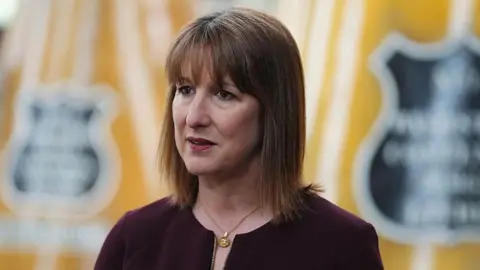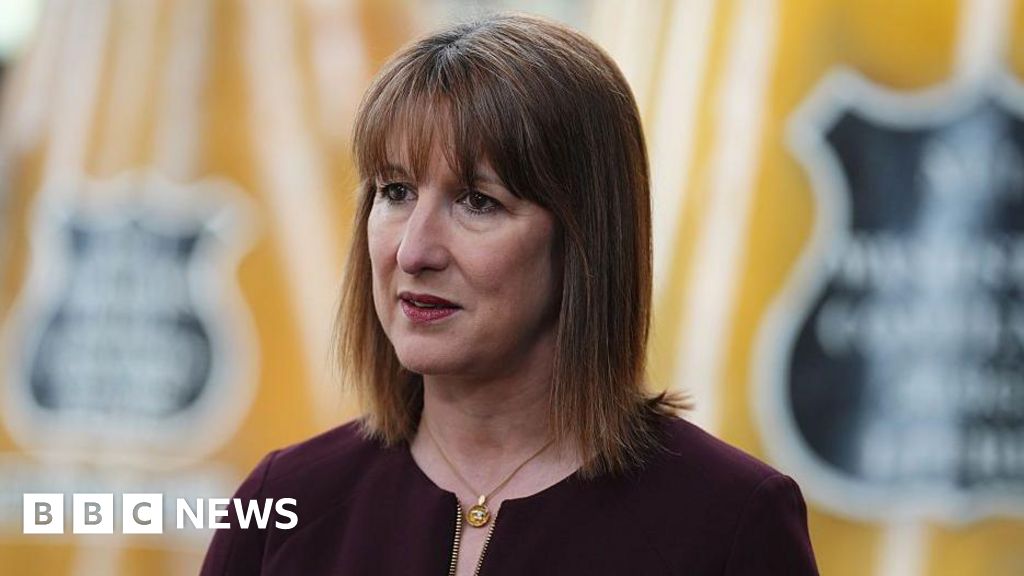Business reporter, BBC News
 Getty Images
Getty ImagesTough choices are “unavoidable” as the government finalises spending plans for areas ranging from the NHS and defence, to schools and the criminal justice system, a think tank has warned.
The Institute for Fiscal Studies (IFS) said the level of spending on health would dictate whether cuts were made to “unprotected” areas – those outside the NHS, defence and schools.
While funding increased sharply in 2024 for transport, net zero, hospitals, schools and prisons, it would no longer increase year on year, given the government’s commitments, the IFS said.
The government said the Spending Review on 11 June would “scrutinise every single pound the government spends”.
The review will outline day-to-day departmental budgets over the next three years and investment budgets over the next four.
Whitehall insiders have told the BBC they expect it will be “ugly”, and that ministers have been fighting over winning small amounts of cash for their respective departments.
There are concerns that plans such as increasing police numbers in a bid to halve violence against women and girls may not be allocated enough cash. There are also discussions over continued funding for capping bus fares.
Chancellor Rachel Reeves stance on ruling out borrowing more money and not raising taxes again has led to strong speculation spending cuts will be made.
The Conservatives say Reeves is only left with these seemingly “impossible choices” because she “chose to push borrowing and spending to the limit”.
“They have pushed up the cost of living, unemployment is rising, growth is stalling,” shadow chancellor Mel Stride said. “And yet Rachel Reeves still clings to her tax-and-spend dogma like it’s the 1970s.”
The IFS said the government had “front-loaded” its spending over the course of the parliament term in the first couple of years, which meant spending would slow down. “The consequences of this decision must be confronted,” the IFS warned.
When it comes to daily spending on public services, the think tank suggested a “huge amount depends on the generosity” of cash handed to the NHS – which accounts for 39% of day-to-day departmental spending – as well as defence.
NHS spending is planned to be £202bn in 2025-2026, the IFS said, which could pull funding from other areas as the government prioritises reducing patient waiting times and improving access to dental care.
“Increasing health funding at anything like the historical average rate would mean imposing real-terms cuts on other ‘unprotected’ departments,” the think tank said.
It said this would prove challenging, especially given the government’s ambitions to improve the criminal justice system and to deal with prison overcrowding.
‘More defence spending means cuts elsewhere’
The IFS added the level of health spending was “in some sense, the central trade-off for the Spending Review” and one that would only become starker if defence spending was increased further or faster than currently planned.
Bee Boileau, a research economist at IFS, said the Treasury faced “some unavoidably tough choices”.
“After turning on the spending taps last autumn, the flow of additional funding is now set to slow to more of a trickle,” she said.
The government has committed to increasing spending on the army and its estates, and announced it would cut the foreign aid budget to increase military spending to 2.5% of national income by 2027.
“Giving more to defence means, all else equal, bigger cuts to something else,” the IFS said.
In October, Reeves changed a self-imposed debt rule, freeing up billions for her to spend on long-term projects such as roads and energy infrastructure, but the IFS warned “not everything can be a priority for further increases”.
It said questions remained about “whether the trade-offs will be confronted rather than wished away”.
To continue to improve public services under tight restraints, the IFS suggested the government could improve productivity, thereby allowing it to deliver the same, or better services within lower budgets.
But that would be a challenge. The ONS reported in 2024 that productivity in public services is currently below pre-Covid pandemic levels.
A government spokesperson said it was “delivering what matters for working people – cutting hospital waiting lists, getting control of our borders and tackling the cost of living”.
The IFS warned choosing to cut public sector pay has led to strikes in the recent past, so keeping pay flat would “pose serious challenges”.
It concluded that cuts to public services would not be impossible to make, but would be challenging and require “ruthless prioritisation”.



